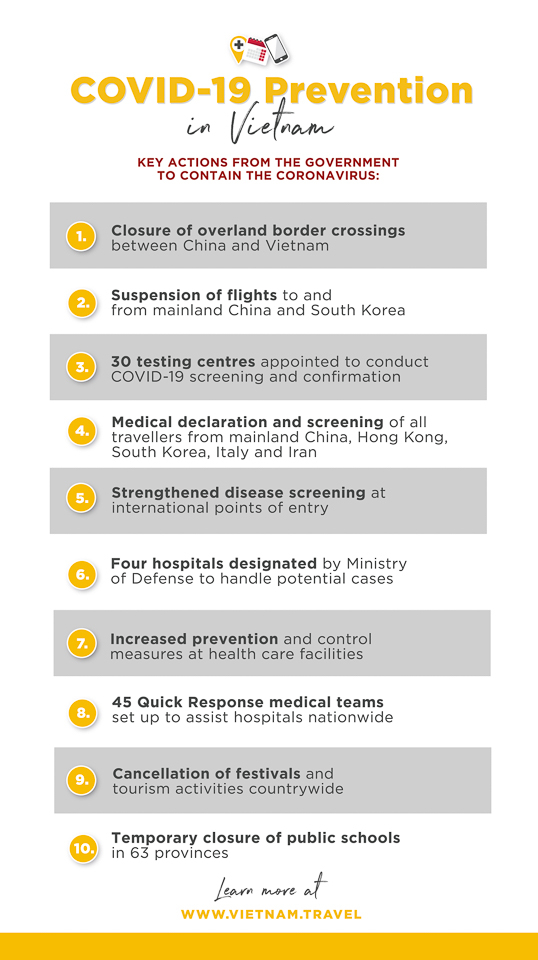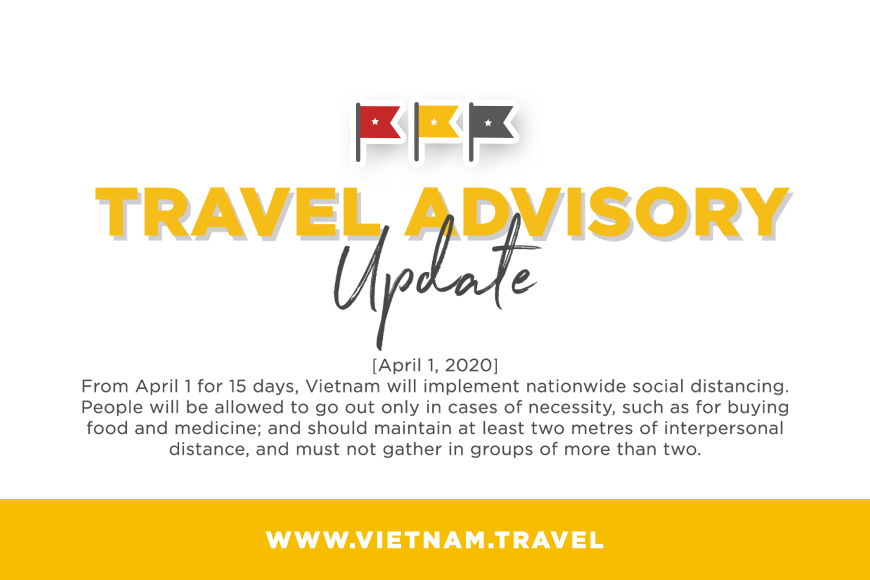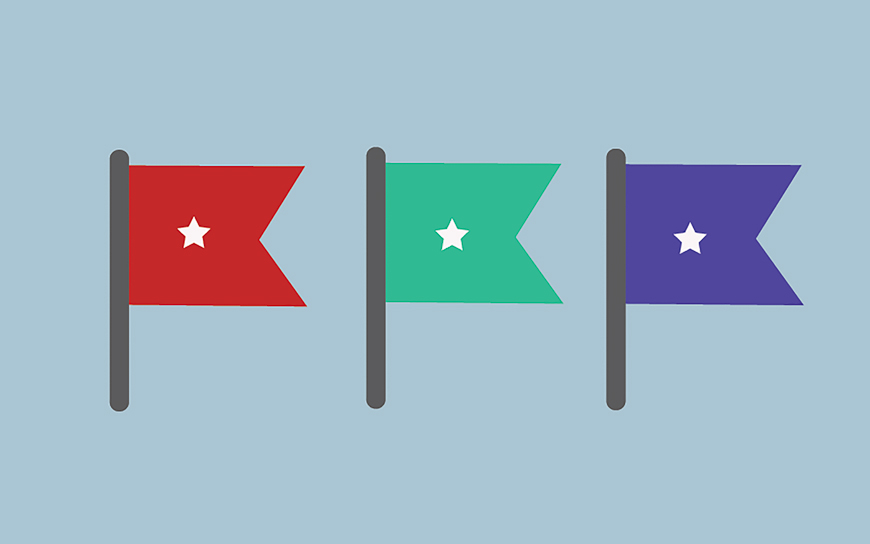UPDATED: 3 June, 2020
Since the start of the novel coronavirus (COVID-19) outbreak, Vietnam has closely monitored the situation and installed a series of proactive, comprehensive measures to combat the spread of the virus within the country and prepare its public health facilities. Past experience with other epidemics places Vietnam in a strong position to protect its population as well as visitors passing through.
Travellers in Vietnam may have questions about the spread of the virus in Vietnam, as well as which destinations are still safe and open to visit. Below is a full overview of the COVID-19 situation in Vietnam as it relates to travellers.
Travellers still remaining in Vietnam may call the ‘Vietnam Tourism Helpline’ for assistance. Please dial (+84) 378 173371 for guidance on visas, accommodation, taxis, food delivery, nearby hospitals, embassy or consulate details. The helpline will be available from Monday to Friday, 9am to 5:30pm, in English only.
Current snapshot of COVID-19 cases in Vietnam
|
The first confirmed cases of COVID-19 appeared in Vietnam on Jan. 23, 2020. Of the confirmed cases that have appeared in Vietnam to date, 223 are Vietnamese, and the rest are foreigners.
Four localities nationwide are still classified as 'at risk': Hanoi, Ho Chi Minh City, Bac Ninh and Ha Giang.
Suspended visa exemptions for travellers to Vietnam
To staunch the spread of COVID-19, Vietnam will not be allowing entry or issuing visas to any foreign nationals, from March 22 until further notice, except for those travelling for official or diplomatic purposes who must undergo medical checks and 14-day quarantine upon arrival in Vietnam. The travel ban also applies to those who currently hold visas or visa letters.
Vietnam has officially suspended all visa exemptions for citizens of South Korea, Belarus, Russia, Japan, Sweden, Denmark, Finland, Norway, UK, France, Germany, Spain and Italy.
Medical checks and quarantines
From March 7, all inbound travellers coming to Vietnam will be required to submit a health declaration and undergo COVID-19 medical checks upon arrival. Travellers can fill out the health declaration at the airport or submit it in advance at this link.
Flights changes related to COVID-19 in Vietnam
Since February 1, all flights to and from mainland China on all airlines have been indefinitely suspended by the Civil Aviation Administration of Vietnam. Flights connecting to South Korea, Macau, Hong Kong and Taiwan are operational with many airlines running reduced routes.
Vietnam Airlines has announced it will suspend all of its two-way international flights from March 25 to April 30, 2020.
Closures and cancellations due to COVID-19
A number of festivals and events in Vietnam have been cancelled or postponed in alignment with the government’s directive to avoid public gatherings.
Organizers have announced that several tourism and sporting events will be postponed or cancelled:
- Huế Festival 2020 - Postponed to August 28, 2020
- F1 Vietnam Grand Prix - Postponed
- Da Lat Sufferfest - Postponed
- Quang Binh Marathon - Postponed
- Techcombank Ha Noi Marathon - Postponed
- Sunrise Sprint - Postponed to May 3, 2020
- Da Nang International Fireworks Festival 2020 - Cancelled
- Da Lat Ultra Trail 2020 - Postponed to June 19-21, 2020
Pedestrian and walking zones in Hue and Hanoi — common gathering places for locals and tourists — will be closed until the situation improves. Tourism sites across the country are also setting aside closure days to disinfect their premises.
NOTE: From now to March 26, Ha Long Bay, Cat Ba, Bai Tu Long Bay, and tourism sites in Ninh Binh will not be receiving guests. The Hoi An Ancient Town is not selling tickets to visitors, and has suspended its pedestrian and cycling street hours until the end of March 2020.
Preventative steps by the Vietnamese government
Vietnam’s Prime Minister officially declared COVID-19 an epidemic in Vietnam on Feb. 1, 2020. Although confirmed cases remain low within the country, authorities are taking swift and strict preventative measures to contain the virus. The government has formed a National Steering Committee to direct efforts and communicate to the public.
Below are the key actions taken by Vietnam to prevent the spread of COVID-19:

In addition to these, many private Vietnamese businesses, residential complexes and tourist accommodations have installed their own preventative measures to keep customers safe.
The National Steering Committee for COVID-19 Prevention and Control has launched an online management and administration centre for COVID-19 diagnosis and treatment, that will support medical facilities in treating COVID-19 patients directly or virtually.
On March 6, Vietnam announced it will produce 10,000 COVID-19 test kits daily, after a successful pilot and approval from the World Health Organization (WHO).
Health and safety precautions for travellers
Travellers in Vietnam are encouraged to take sensible precautions against COVID-19 during their trips.
The World Health Organization outlines these basic practices to keep yourself and your loved ones safe:
-
Avoid travelling if you have a fever and cough. If you have fever, cough, and difficulty breathing, alert health care services and share with them your recent travel history.
-
Maintain social distancing. Stay a metre or more away from others, especially those who are sneezing or coughing, or have fever.
-
Wash your hands regularly with soap and running water. You can also use an alcohol-based hand-sanitizer to spray your hands as often as you like.
-
Cover your mouth and nose with tissue when you cough or sneeze. Dispose of dirty tissues immediately and wash your hands after coughing or sneezing.
-
Avoid contact with live animals. Wash your hands with soap and water if you touch live animals or animal products in markets.
-
Eat only well-cooked food. Make sure your meals especially animal proteins and dairy products are thoroughly cooked and prepared in a sanitary environment.
-
Discard single-use masks. If you choose to wear a single-use mask, ensure it covers your nose and mouth, avoid touching the mask, and wash your hands after removing it.
Any travellers experiencing symptoms of the virus — fever, cough and difficulty breathing — should immediately call Vietnam’s health hotline: 19003228.
Online trackers and official government sites
Travellers looking for updated statistics on COVID-19 can use the Coronavirus app.
Updates from the Vietnamese government: https://ncov.moh.gov.vn
News updates from Footprint Vietnam: https://footprint.vn/health-vietnam-indochina
| 3,215 |












